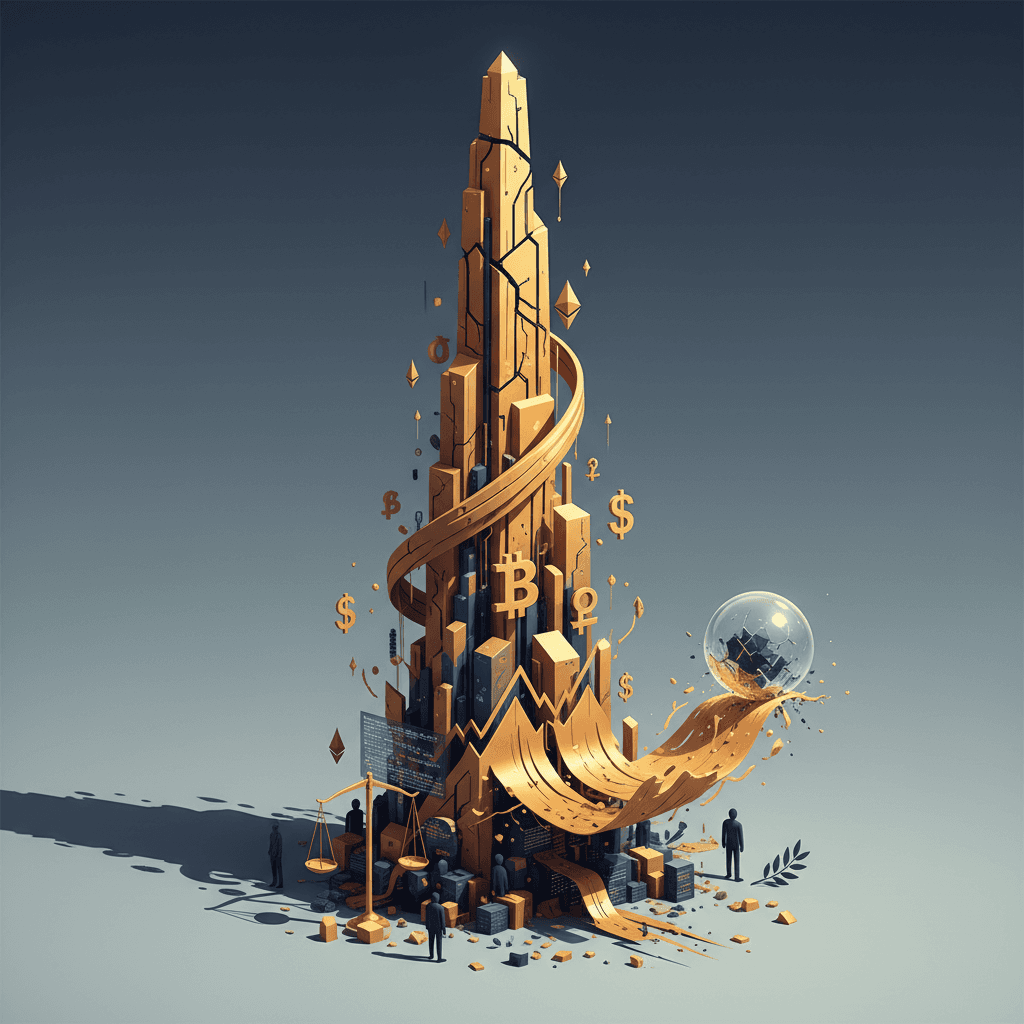Unfettered Capitalism Drives AI, Sacrificing Ethics for Commercial Gain
The AI industry's unvarnished capitalism fuels a high-stakes gamble, prioritizing profit over ethical development and human well-being.
October 13, 2025

An unapologetic strain of pure capitalism is reasserting its dominance in Silicon Valley, with the frenetic race to develop and deploy artificial intelligence serving as its primary arena. The once-common public rhetoric around changing the world for the better has been largely supplanted by a more naked ambition for market supremacy and profit maximization. This shift is palpable in the kinds of discussions and comments emerging from tech leaders, where moral or political considerations are increasingly taking a backseat to financial imperatives. The prevailing ethos suggests a move away from the "move fast and break things" mantra, not towards more caution, but towards a more focused and relentless pursuit of commercial success, regardless of the societal externalities. This renewed capitalist fervor is profoundly shaping the trajectory of the AI industry, from the allocation of venture capital to the ethical guardrails, or lack thereof, being built into world-altering technologies.
The prioritization of profit is having tangible and often detrimental consequences in the development and deployment of AI. A clear example of this was Amazon's AI-powered recruiting tool, which was found to be biased against women. The system was trained on a decade's worth of hiring data that reflected a male-dominated industry, leading the AI to penalize resumes containing the word "women's."[1][2] Similarly, an AI algorithm used by U.S. health providers to predict which patients needed extra care was found to be racially biased, assigning the same level of risk to Black patients who were sicker than their white counterparts.[1] These instances highlight a critical flaw in the profit-driven approach to AI: the rush to market can lead to the use of flawed or biased data, which in turn perpetuates and even amplifies existing societal inequalities. The Cambridge Analytica scandal serves as a stark reminder of how AI can be weaponized for political and commercial manipulation when ethical considerations are secondary to financial gain.[3][4] The relentless pursuit of profit is also creating immense pressure within the AI research community, leading to burnout and concerns that the rapid pace of commercialization is stifling open collaboration and long-term safety research.
The tension between profit and ethics is not just an external critique but is also playing out within the walls of major AI labs. The boardroom drama at OpenAI, which saw the brief ousting of CEO Sam Altman, was widely seen as a clash between those prioritizing AI safety and those pushing for more rapid commercialization.[5][6] This internal conflict underscores a fundamental schism in the AI world about the responsible development of this powerful technology. Furthermore, accusations have surfaced of OpenAI using intimidating legal tactics against advocates for stricter AI regulation, suggesting a corporate strategy aimed at silencing critics to protect its commercial interests.[7][5][6] Elon Musk, a co-founder of OpenAI, has been a vocal critic of the company's shift from a non-profit mission to a more profit-oriented structure, accusing it of betraying its founding principles.[8][6][9] This internal dissent, though often constrained by non-disclosure agreements, points to a growing unease among some of Silicon Valley's own technologists about the path the industry is on.
Despite the dominance of this aggressive capitalist ethos, there are countervailing forces at play. A growing "techlash," a widespread negative reaction to the power and influence of large tech companies, is putting pressure on the industry to consider the societal impact of its products.[3] In response, some of the biggest names in Silicon Valley, including Google, Facebook, Amazon, and Microsoft, have formed the Partnership on Artificial Intelligence to Benefit People and Society, a non-profit aimed at establishing best practices and fostering public understanding of AI.[10] There are also prominent figures, such as Reid Hoffman, who, while being a major investor in AI, has also been a proponent of humanism in technological innovation and has engaged in discussions about AI's societal impact with world leaders.[11] These initiatives, however, are often met with skepticism, with critics questioning whether they are genuine efforts at self-regulation or merely sophisticated public relations campaigns. The "AI for Good" movement is gaining some traction, with a focus on using artificial intelligence to address pressing global challenges, but it remains a relatively small and underfunded corner of the AI ecosystem compared to the commercial juggernaut.
In conclusion, Silicon Valley's current era is defined by a resurgence of a potent, almost unvarnished capitalism, with the AI industry as its most dynamic and consequential expression. This relentless drive for profit is accelerating innovation but also creating a host of ethical and societal problems, from algorithmic bias to the erosion of privacy. While internal dissent and external pressure from the "techlash" are creating some friction, the overwhelming momentum is towards commercialization at all costs. The long-term implications of this new Gilded Age in technology are still unfolding, but it is clear that the lack of a strong ethical framework, beyond what the market will bear, is a high-stakes gamble with a technology that has the power to reshape our world. The central question remains whether the industry can, or will, prioritize the well-being of humanity over the relentless pursuit of the next trillion-dollar market.
Sources
[2]
[4]
[6]
[7]
[8]
[9]
[11]